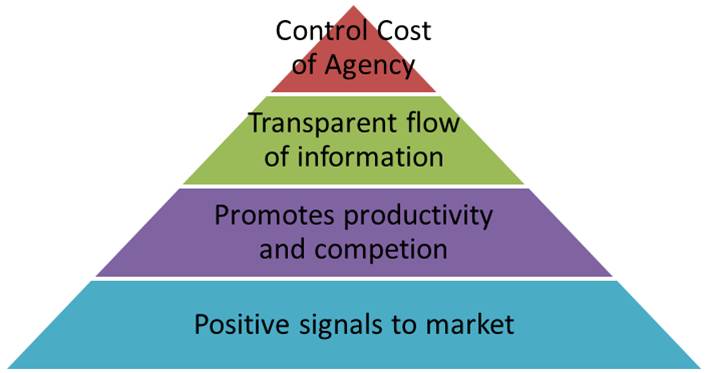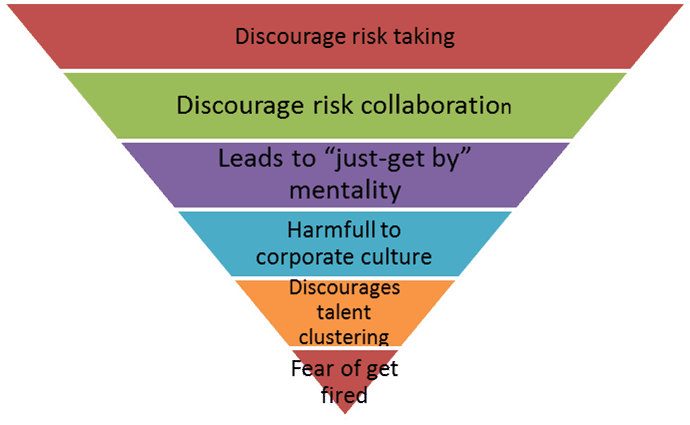In-Depth Review: Critical Perspective On Management
Detailed review by Class Central user Cristian Artoni on a fundamental management MOOC for any junior or senior manager.
This review is by Cristian Artoni. Cristian is a MTM (methods-time measurement) analyst and project manager in staff of the COO. He is also one of the Senior Mentors of the Coursera course Learning How To Learn. In his opinion, learning and critical thinking are the two skills which every manager needs to master.
Took the course? Write your own review here. Read all reviews.
BACKGROUND
Critical Perspectives on Management with Rolf Strom-Olsen
I started following the Coursera courses in September 2013. I had heard about MOOCs precisely in August of that year from a famous Italian radio broadcast.. And I thought: “Hey Cristian, but this is something you need to do.”
After taking the high school diploma, I could not attend a university. But just in that moment I discovered how much I loved to learn: the need to study to grow my skills. So even though in time I had become a director of a branch of my company (a highly absorbent work in terms of time), I was trying to study any subject could help me to better understand the world in which I was living in.
As generalist manager I was very interested in understanding leadership (I was managing a group of about 20 people), communication and reasoning techniques. To deepen these topics, for years I was studying logic: still I did not know (I had only sensed) that critical thinking was one of the most important skills for a leader.
So it was that in January 2014 I enrolled in the course of Prof. Rolf Strom-Olsen, Critical Perspective On Management (CPOM). I said to myself when I read the rubric: “This course contains everything I need to know!”.
THE COURSE
CPOM at that time was my third MOOC in Coursera, and since the first lesson it was immediately clear to me how powerful was the message contained in this course.
The course is organized in 6 weeks and all the lessons are recorded in one of the classrooms of one of the most prestigious European business schools: the IE Business School of Madrid. The feeling you get is that of being a student, sitting among the desks of this prestigious institution, listening to one of the most engaging professor of ever.
Far from being monologues, Prof. Strom-Olsen’s lessons are true example of Socratic dialogue.
Prof. Rolf Strom-Olsen is a great communicator. The way he introduces topics, dissects and analyzes them, is simply impressive. Far from being monologues, Prof. Strom-Olsen’s lessons are true example of Socratic dialogue. CPOM follows the principles of logic: assumptions and conclusions at the end of each week, drive to new arguments for the following lessons. The course ends with a couple of case studies that demonstrate the validity of the arguments put forward during the entire course.
WHAT I LEARNED
If I had to summarize the course of Prof. Rolf Strom-Olsen in one sentence, I would say: the power of narrative.
If I had to summarize the course of Prof. Rolf Strom-Olsen in one sentence, I would say: the power of narrative.
As a young manager, I was often tempted to follow an evaluation scheme of my staff according to ranking scheme based on their performances. In CPOM is presented the case of Forced Ranking Distribution Scheme (FRDS), a method introduced by GE’s CEO Jack Welch, to push the competitiveness of his company through an “objective” performance evaluation of his employee. Each year 10% of the staff at the bottom of the ranking was simply asked to look for another job.
“Wow” – many managers will say – “it is brilliant! This will retain the best talent and every year there is an opportunity to recruit new ones.”
But as sharply presented by Prof. Strom-Olsen, there is no scientific basis to demonstrate a close correlation between growth in business and having adopted this system for a company (just think about Google or Microsoft, which recently abandoned “Stack Ranking” ).
Furthermore, the outcomes of having adopted a system of this type, only apparently have a positive impact (company point of view):
While in reality the point of view of an employee is completely opposite:
Would you like to work in a team who feel that way?
Something that a true leader can’t afford in the daily practice of managing within his own working environment.
Thanks to the Roman grain trade, I have learned that the principal-agent problem can be overcome by building a solid culture of reputation within the company (something for which any stakeholder is willing to assign a value to).
I learned to doubt that the word innovation in the contest of management, is something we can easily define, and I have learned to doubt that the steady growth (and sometimes not controlled) is the only way to ensure that a company can survive the changing conditions of a market.
Is it not true that the longest living organisms are those that can best adapt to the changing environment in which they live?
I have also learned to look at the business world with different eyes: who are the shareholders of this large corporations? What are the interests that they move? Are their interests consistent with ones of their stakeholders?
Apparently it seems not to be so.
Can a manager, who bases much of his wages on stock options, have a long-term vision of wellness for his own company? The increasing economic inequality in the population that we are experiencing and the constant economic crisis do not seem to provide a valid justification to the myth of these super paid CEOs.
Still, the FDRS, growth as the only parameter of success, the self-regulating force of the market and the new myths of entrepreneurship, are a form of narrative that many managers are following without posing fundamentals questions: what does this mean? Why? Just, critical thinking!
WHY EVERY MANAGER SHOULD IN ENROLL
To me It’s quite clear. Because the current narrative in terms of management is no longer reflecting economic reality (and I dare say, perhaps it never had solid basis).
Or maybe it’s much better to say that the events occurred in the last fifteen years (especially since 2008) have shown us that most of the management theories were simply guided by a narrative that often have lead to unfavorable outcomes.
Prof. Rolf. Strom-Olsen, not praise to a ” happy decrease” but introduces in the practice of management a more neutral concept: adaptation.
If innovation is synonymous of granted growth, what is the correct definition of innovation? And if innovation ensures a steady growth why the lifetime of companies currently has shrunk to one third compared to thirty / forty years ago?
Something that many managers and shareholders should think about for the good and their stakeholders, and for the good of their companies.
Adaptation is a neutral term: it may mean that in some cases it is right to think of expanding a market, but in other cases it may mean redesign a business, so that it can survive to unexpected changes (new requirements, more innovative competitors, etc.), in order to enhance the core competencies of the company and have a survival perspective (and maybe future growth).
Yet history has shown us that many companies have pursued the narrative of growth at all costs. The results we know them all.
CONCLUSION
Critical Perspective On Management is a fundamental MOOC for any manager (whether you are a Junior or a Senior) to have a hope of a positive and fairer change for the economic future of our society.
This is a MOOC that provide “food for thoughts” in a fun, engaging and exciting way. And this is a big plus.
To resume Socrates’ quotation:
“The unexamined life is not worth living.”
Thanks for all Prof. Rolf!
[review_widget]
Class Central is looking for reviewers and regular contributors. If you’ve ever finished a MOOC and want to write a critique to help future students considering taking that course, we want to hear from you. Drop us a mail.








WarriorNair
Such a well-written review. I was a part of the same session and your review refreshed the course for me. Prof. Olsen is brilliant.